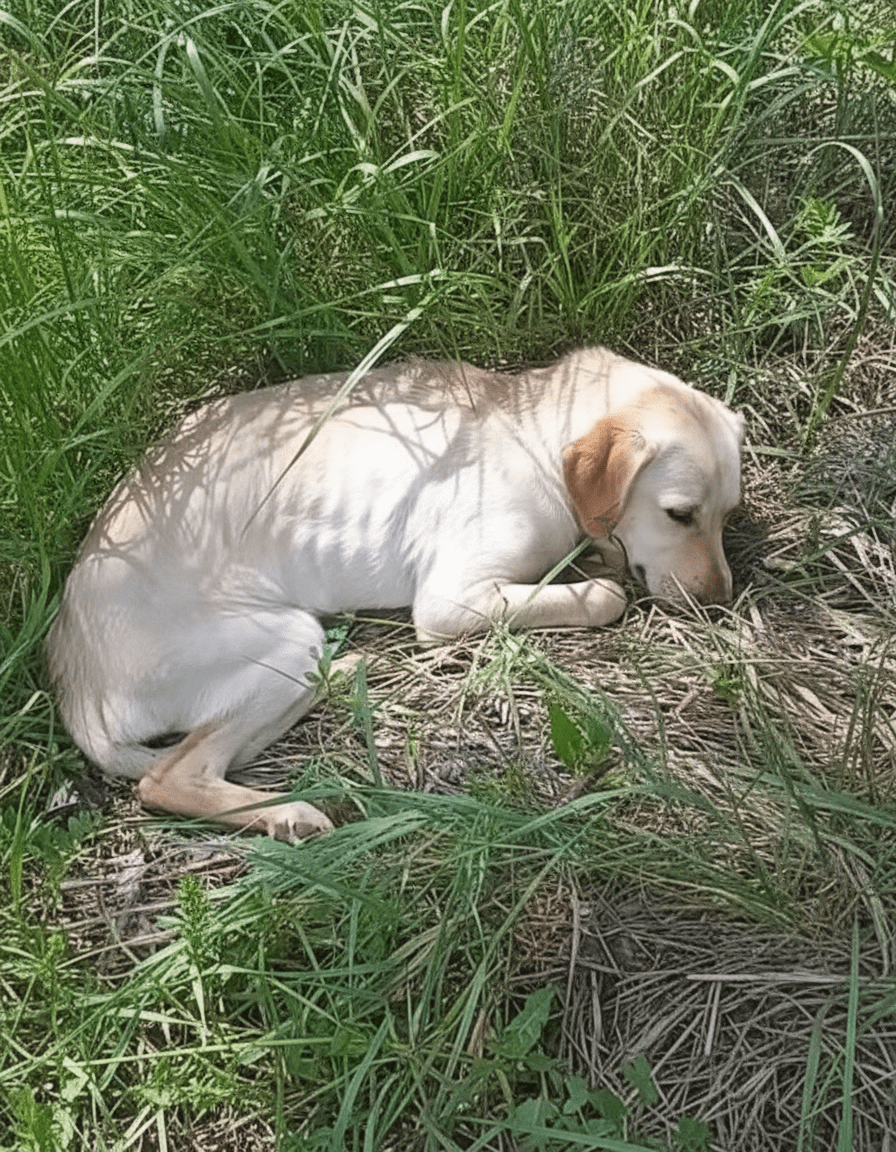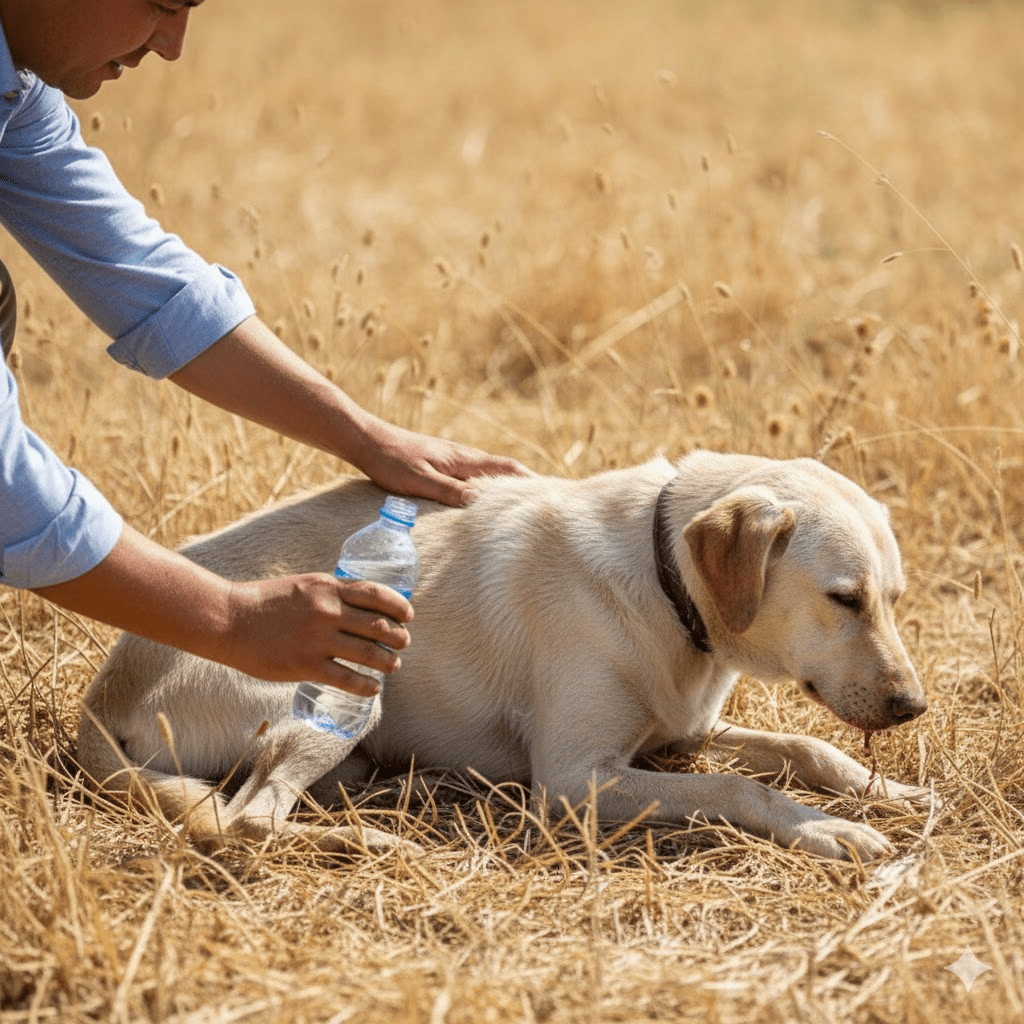The scorching sun beat down on the parched earth, casting long, unforgiving shadows. Hidden amidst the tall, dry grass, a small, emaciated figure lay motionless. It was Lola, a dog teetering on the precipice of death, her body a stark testament to the cruel indifference of humanity. Rescuers, alerted by a faint whimper carried on the wind, found her barely alive—lying on her side, covered in dust, too weak to move. Her bones pressed against her skin, her tongue bloodied and swollen from desperate attempts to find moisture, her eyes distant, reflecting a silent plea for an end to her suffering.

There were no crash wounds, no signs of a struggle, just the quiet, insidious cruelty of starvation slowly consuming her from within. Rope burns, deeply etched into her neck, told a chilling story: she hadn’t merely wandered off and gotten lost; she had been deliberately left, abandoned to face her fate alone. Yet, even in that broken, fragile body, a flicker of defiance remained—a spark of life that, against all odds, was deemed worth saving.

The initial hours were critical. Every breath Lola took was a struggle, every heartbeat a testament to her fading will. The rescue team, seasoned professionals accustomed to grim scenes, worked with a quiet urgency. They administered intravenous fluids, slowly introducing nutrients to her starved system, careful not to overwhelm her delicate body. Her temperature was dangerously low, her vital signs barely registering. Vets initially held little hope, suggesting euthanasia might be the most humane option. But as a young volunteer, Sarah, gently stroked Lola’s head, the dog’s tail gave a minuscule, almost imperceptible twitch. It was enough. That tiny flicker of response ignited a fierce determination in the team: they would fight for Lola.

Days turned into a grueling week. Lola remained in critical condition, her recovery hampered by repeated infections and the devastating toll starvation had taken on her organs. Just when it seemed she might turn a corner, she developed aspiration pneumonia from her weakened state, a severe setback that plunged her back into the abyss of uncertainty. The vets prepared Sarah for the worst, their faces grim. They advised that another night might be her last. Sarah, however, refused to leave her side, sleeping on a cot beside Lola’s kennel, whispering words of encouragement, softly singing lullabies, and just being a constant, comforting presence.

Then came the unexpected twist. On the eighth morning, Sarah awoke to a soft nudge. Lola, weak but determined, had managed to lift her head and rest it gently on Sarah’s hand. Her eyes, no longer distant, held a spark of recognition, a glimmer of gratitude. It was a miracle. From that moment, Lola’s recovery, though slow, was unwavering. She began to eat small, frequent meals, her strength gradually returning. She learned to trust again, her initial fear giving way to cautious affection, especially towards Sarah, her constant companion.






